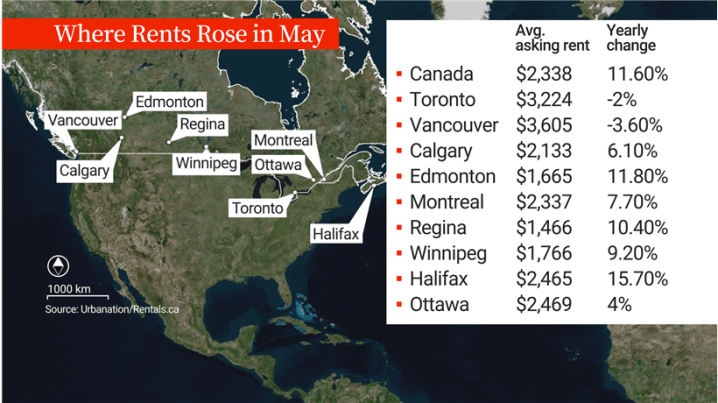Canadian renters are feeling the pressure as rental prices continue to soar. The latest data from Rentals.ca and Urbanation reveals that the average asking rent for all property types surpassed $2,200 for the first time in May, marking a 9.3% increase year-over-year. In expensive markets like Toronto and Vancouver, two-bedroom apartments now cost renters over $3,000 per month.
While rents remain lower in most cities outside Ontario and British Columbia, places like Edmonton and Regina have seen double-digit annual rent hikes for single-bedroom units. Economists suggest there is hope for renters as efforts to increase rental supply and slow population growth might stabilize rents. However, renters shouldn’t expect significant drops in rent costs soon.

Data shows a slight moderation in rent increases, with a national three-month average rent drop of 0.4%. Notably, Toronto and Vancouver have seen annual rent decreases for two-bedroom units. Montreal remains more affordable, with smaller annual rent increases.
Affordable markets like Saskatoon, Regina, and Edmonton continue to face rising rents. Recent surveys indicate many Canadians are considering moving to more affordable regions. Alberta remains a popular destination, but this has driven up rents in cities like Edmonton.
High interest rates have contributed to rising rents, as landlords pass increased costs onto tenants. Despite higher borrowing costs, rental construction remains strong, with rental housing starts surpassing pre-pandemic averages. Government incentives and increased demand have motivated builders to continue scaling up efforts.
Population growth remains a key factor influencing rents. With Canada’s population growing rapidly, efforts to cap levels of non-permanent residents could ease pressure on the rental market. However, substantial relief for existing renters may take time as new rental units are quickly absorbed by high demand.






